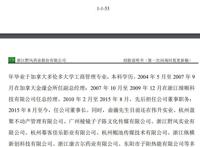子谦译文|创业教什么:六种主流创业理论的对比研究(4)
2023-06-03 来源:旧番剧
然而,规范性创业方法由于缺乏严谨性和相关性而广受批评,以从业者本身为基础的创业方法因缺乏理论严谨性而糟受到批评,这就导致了一些不良后果,比如一些创业者过早的放弃。以学术基础的创业方法被认为既缺乏实践相关性,也缺乏理论严谨性,这个方法的一个缺点是缺乏信任价值,这是受创业的特定背景影响,因此很大程度上限制了大部分未经测试的方法的适用性;另一个经常被提及的缺点是缺乏实用性,因此那些具体可行的建议有限,一个实例就是最近关于效果逻辑理论的辩论,有人认为它是一个欠成熟的理论,是一个缺乏实用性的管理工具,有可能会导致创业者产生危险的行为。更令人担忧的是,它甚至可能会诱使创业者忽视竞争的风险、甚至是最基本的规划做法的必要性。In an attempt to further the development of the field of entrepreneurial methods, this article compares effectuation in a highly detailed manner with five other entrepreneurial methods. Similarities, differences, strengths, weaknesses, overlaps, and gaps are explored along nine key conceptual dimensions. This process helps organize the field of entrepreneurial methods in a more comprehensible way for both scholars and practitioners. Increased clarity and visibility across the range of entrepreneurial methods may serve as a source of inspiration for work to improve existing entrepreneurial methods as well as to develop new ones. Thus, this article lays a foundation for proponents of entrepreneurial methods to use in future work. Proponents of practitioner-grounded entrepreneurial methods could increase the theoretical rigor of their prescriptions by drawing on scholarly grounded entrepreneurial methods. Similarly, proponents of scholarly grounded entrepreneurial methods could use this comparison to increase their practical relevance by drawing on practitioner-grounded entrepreneurial methods. Works that build on the comparison conducted here can serve as a bridge between different prescriptive endeavors in entrepreneurship thatare developed in relative isolation.
猜你喜欢
动漫推荐
免责声明:动漫番剧数据来源网络!本站不收费,无vip,请勿上当!
www.jiufanju.com-旧番剧





















